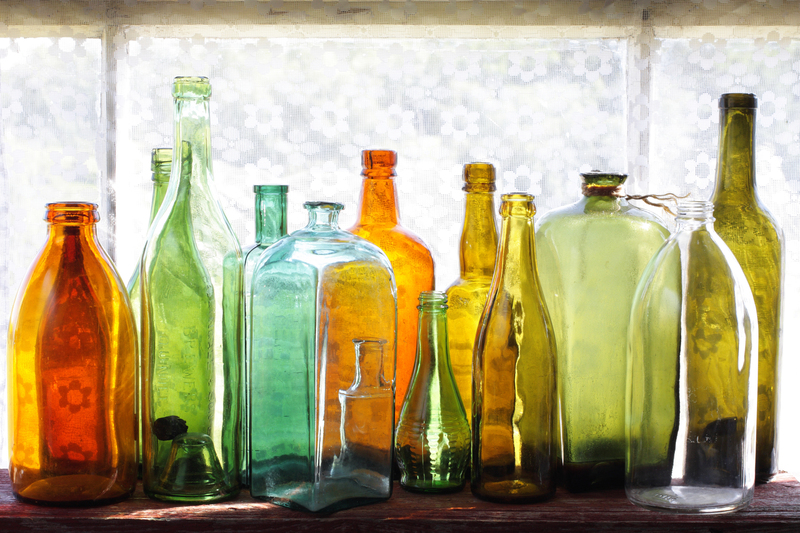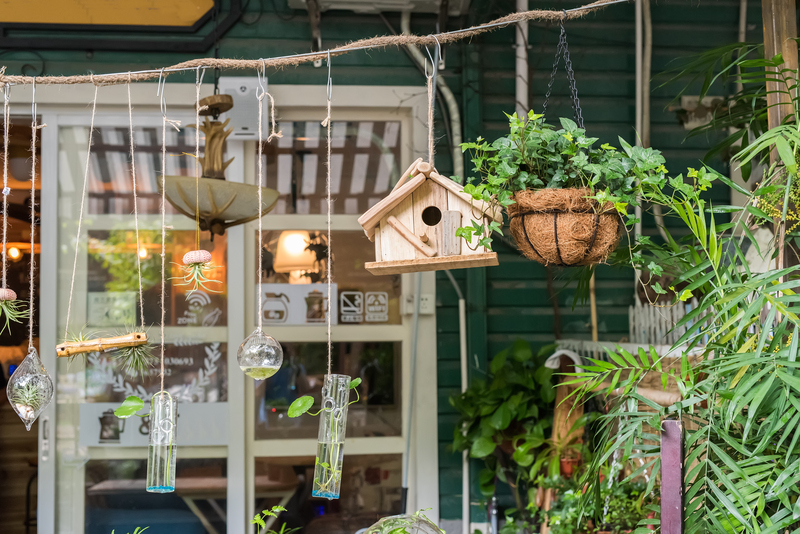Hassle-Free Plant Pot Disposal Tips: An Eco-Friendly Guide
Are your garden and home overflowing with old plant pots you no longer need? Whether you're an avid gardener or a plant-loving newcomer, the question of what to do with leftover planters can sneak up on anyone. Plant pot disposal might seem like a minor chore, but choosing the right method can make a big environmental impact. From recycling to creative repurposing, discover the hassle-free plant pot disposal tips you need to clear your space sustainably and sensibly.

Why Responsible Plant Pot Disposal Matters
Millions of plastic and ceramic pots end up in landfills every year. Disposing of pots improperly contributes to harmful plastic pollution, takes up unnecessary landfill space, and wastes resources that could be reused or recycled. By following effective plant pot disposal methods, you can:
- Minimize your carbon footprint
- Support local recycling and conservation efforts
- Try creative upcycling or donate to those in need
- Maintain a tidy and clutter-free gardening space
Understanding Your Plant Pot Materials
Before you decide how to get rid of your unused plant pots, it's important to identify the material. Here's a quick overview:
- Plastic Pots: Lightweight and durable, these are the most common yet the most problematic for the environment due to their low recycling rates.
- Ceramic Pots: Often glazed and decorative, ceramic pots can sometimes be recycled, but more often they are better suited for repurposing.
- Terracotta Pots: Made from clay, these are porous and lend themselves well to upcycling projects or even safe disposal in landfill (since they break down more easily than plastics).
- Biodegradable Pots: These are designed for compost and break down naturally without harming the environment.
Plastic Plant Pot Disposal Tips
Plastic planters are notorious for ending up in the trash. However, plenty of hassle-free plant pot disposal solutions exist:
Check Local Recycling Programs
- Contact your local recycling center: Not all plastics are accepted in curbside bins. Look for recycling centers that specifically handle horticultural plastics or garden pots.
- Garden center pot recycling schemes: Major retailers like Lowe's or The Home Depot occasionally offer take-back programs, especially during the spring and summer months.
- Clean your pots: Always rinse out soil, fertilizer, and plant debris before dropping off pots for recycling.
Reuse or Repurpose for Home and Garden Projects
- Seed starting: Old plastic pots are perfect for germinating new plants.
- Organizing tools or hardware: Use cleaned pots for storing small garden accessories, screws, or even craft supplies.
- Craft activities: Invite kids to decorate them for fun planters, pencil holders, or even as molds for eco-bricks.
Donate to Community Gardens or Schools
- Community organizations: Many local gardening clubs, schools, or charities welcome donations of clean, serviceable pots.
- Neighborhood gardening initiatives: Share posts on social media or neighborhood boards to connect with people who can use your surplus.
Ceramic Pot Disposal Strategies
Ceramic pots, whether chipped, cracked, or simply unwanted, need special consideration:
- Repurpose as garden art: Broken ceramics make unique mosaic stepping stones, garden paths, or drainage fillers for larger containers.
- Household use: Use pottery shards at the bottom of pots to improve drainage and reduce waste.
- Check ceramics recycling: Some centers accept ceramics, though you may need to call ahead. If not, offer usable items on online buy-nothing groups or marketplace apps!
Composting Biodegradable Plant Pots
Biodegradable pots offer the easiest plant pot disposal option! If your pots are labeled as compostable or made of materials like coconut coir, peat, bamboo, or recycled paper:
- Add directly to compost: Tear into small pieces for quicker breakdown, removing any plastic tags or labels.
- Plant directly in the soil: Many biodegradable pots are meant to be planted with the seedling, minimizing root shock and landfill waste.
Terracotta Pot Disposal or Repurposing
Terracotta's earthy composition lets it break down over time, but it's also wonderful for upcycling:
- Garden decorations: Create fairy gardens, rustic plant towers, or homemade birdbaths.
- Crush for mulch: Broken pots can be used as mulch or beneath paving to help with drainage.
- Donating or swapping: Terracotta pots are often sought after. Offer them on Freecycle, gardening forums, or at plant swaps.
Clever Upcycling Ideas for Plant Pots
If you enjoy a little creativity, upcycling is a rewarding way to extend the life of old pots:
- Candle holders or tealight lanterns - Add sand or pebbles and place candles inside for a cozy ambiance.
- Desk organizers - Use small pots to tidy pens, brushes, or art supplies.
- Planter towers - Stack multiple pots for a vertical garden effect.
- Outdoor games - Painted pots make ideal targets for bean bag toss, or bases for backyard bowling.
Don't be afraid to get kids involved in decorating or transforming old pots. It's both educational and a great way to reinforce sustainable living.
Best Practices for Hassle-Free Plant Pot Disposal
To ensure your plant pot disposal is hassle-free and environmentally conscious, follow these essential best practices:
- Sort by material: Separate plastics, ceramics, and biodegradable pots before disposal or recycling.
- Clean thoroughly: Remove all soil and debris to prevent contamination, especially for recycling programs.
- Remove labels or stickers that can interfere with recycling processes.
- Contact your local waste authority for up-to-date guidelines on garden waste and pot disposal.
- Bundle donations in reusable bags or boxes to make drop-offs easier for charities or garden groups.
Frequently Asked Questions About Plant Pot Disposal
Can I throw plant pots in my household recycling bin?
It depends on your local regulations and the type of plastic. Most standard curbside programs do not accept plant pots due to their shape, size, and plastic type. It's best to check local guidelines or take advantage of specialist recycling drop-offs.
Are there plant pot take-back schemes in the UK/US?
Yes, large garden centers and some hardware stores run seasonal pot recycling programs. Keep an eye out during peak planting seasons or inquire at your favorite retailer.
How do I dispose of cracked or broken ceramic pots?
If your local recycling doesn't accept ceramics, get creative! Use the pieces for mosaic art, drainage layers, or offer them up to arts and crafts groups.
Do biodegradable plant pots really break down in compost?
Absolutely - especially if shredded or crumbled first, and provided the pot doesn't have any non-compostable liners or coatings.
What Not to Do: Plant Pot Disposal Mistakes to Avoid
- Never burn plastic plant pots: Burning releases toxic fumes harmful to people and wildlife.
- Don't dump in nature: Pots left in wild areas become litter and potential hazards to animals and waterways.
- Avoid landfill if possible: Most pots can be recycled or reused, so landfill should be a last resort.
- Don't forget to clean: Dirty pots may be rejected by recycling or donation programs.

Summary: Your Eco-Friendly Plant Pot Disposal Checklist
- Identify the pot material: plastic, ceramic, terracotta, or biodegradable.
- Clean out all residue and labels.
- Check local recycling options and garden center schemes.
- Explore donation opportunities for reusable pots.
- Get creative with upcycling and repurposing ideas.
- Compost biodegradable pots whenever possible.
By staying informed and proactive, you'll turn plant pot disposal from a dull task into an opportunity for sustainability and creativity. Embrace these hassle-free tips for a greener, cleaner home and garden!
Ready To Make a Difference?
Don't let piles of unwanted plant pots clutter your space or harm the environment. Follow these hassle-free plant pot disposal tips to recycle, donate, or transform your old planters. For more eco-friendly gardening advice, check your local regulations, give your community a helping hand, and always look for new ways to recycle and upcycle in your own backyard.
Start your eco-garden journey today--one pot at a time!